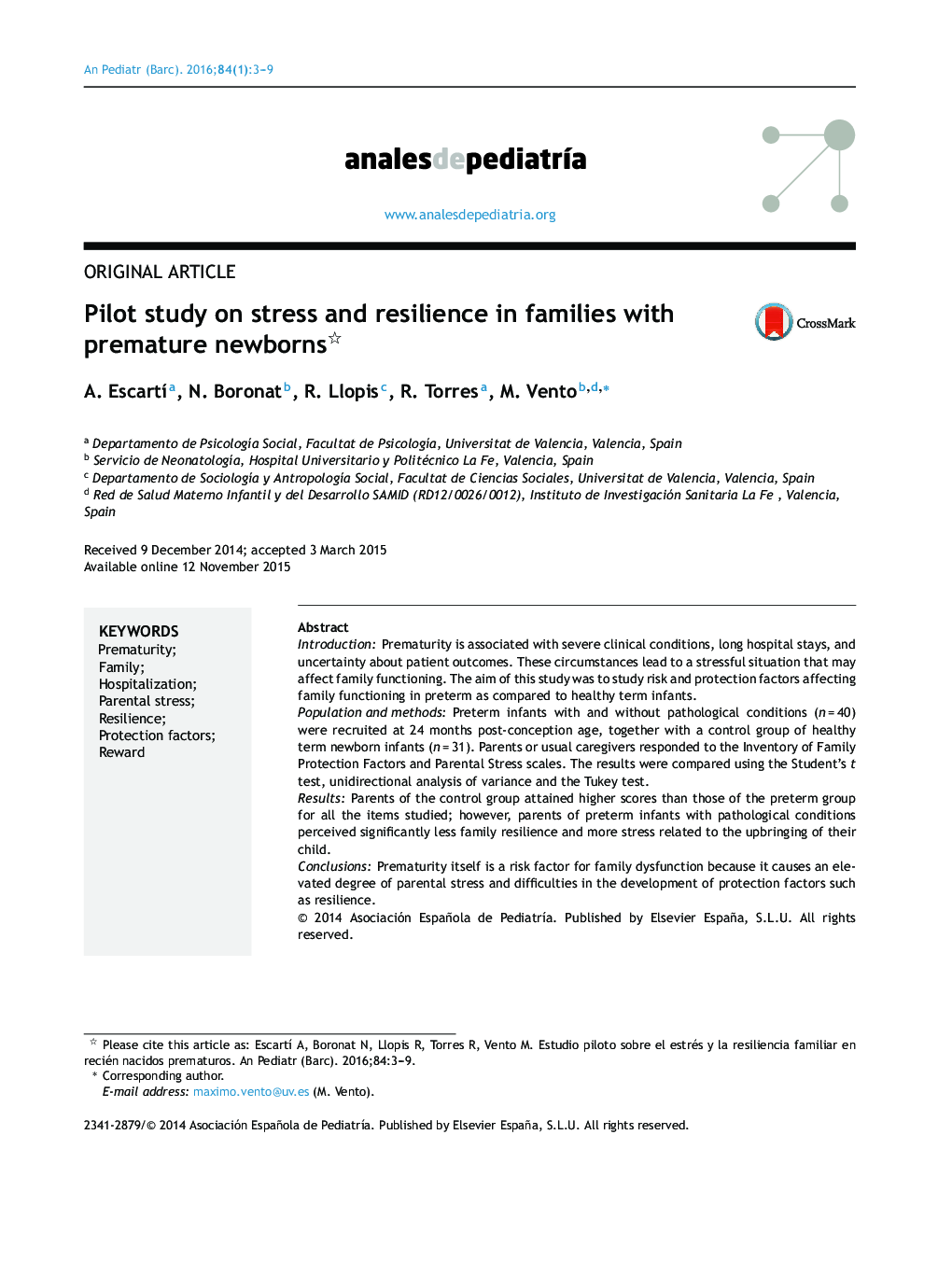| کد مقاله | کد نشریه | سال انتشار | مقاله انگلیسی | نسخه تمام متن |
|---|---|---|---|---|
| 4145089 | 1272586 | 2016 | 7 صفحه PDF | دانلود رایگان |
IntroductionPrematurity is associated with severe clinical conditions, long hospital stays, and uncertainty about patient outcomes. These circumstances lead to a stressful situation that may affect family functioning. The aim of this study was to study risk and protection factors affecting family functioning in preterm as compared to healthy term infants.Population and methodsPreterm infants with and without pathological conditions (n = 40) were recruited at 24 months post-conception age, together with a control group of healthy term newborn infants (n = 31). Parents or usual caregivers responded to the Inventory of Family Protection Factors and Parental Stress scales. The results were compared using the Student's t test, unidirectional analysis of variance and the Tukey test.ResultsParents of the control group attained higher scores than those of the preterm group for all the items studied; however, parents of preterm infants with pathological conditions perceived significantly less family resilience and more stress related to the upbringing of their child.ConclusionsPrematurity itself is a risk factor for family dysfunction because it causes an elevated degree of parental stress and difficulties in the development of protection factors such as resilience.
ResumenIntroducciónLa prematuridad se acompaña de patología severa, estancias prolongadas en el hospital e incertidumbre acerca del futuro de los pacientes. Estas circunstancias suponen un estrés que puede afectar al funcionamiento de la familia. El objetivo de este trabajo ha sido estudiar los factores de riesgo y de protección del funcionamiento familiar en prematuros comparados con neonatos sanos a término.Población y métodosSe reclutó a prematuros que cursaron el periodo neonatal con y sin patología (n = 40) a los 24 meses de edad posconcepcional y un grupo control de nacidos a término sanos (n = 31) según datos de la historia clínica. El progenitor cuidador habitual respondió al Inventario de Factores de Protección Familiar y Escala de Estrés Parental. Los resultados se compararon mediante test de Student, análisis de variancia unidireccional y test de Tukey.ResultadosLos padres del grupo control obtuvieron puntuaciones más elevadas que los de los prematuros en todos los parámetros estudiados. Los padres de prematuros sin patología se diferenciaron de los controles en 2 factores de resiliencia familiar: experiencias positivas y experiencias de compensación y en estrés, mientras que los padres de niños prematuros con patología percibieron significativamente menor resiliencia familiar y más estrés por la crianza de sus hijos.ConclusionesLa prematuridad es un factor de riesgo para el funcionamiento familiar, ya que ocasiona un alto grado de estrés parental y dificulta el desarrollo de factores de protección como es la resiliencia.
Journal: Anales de Pediatría (English Edition) - Volume 84, Issue 1, January 2016, Pages 3–9
